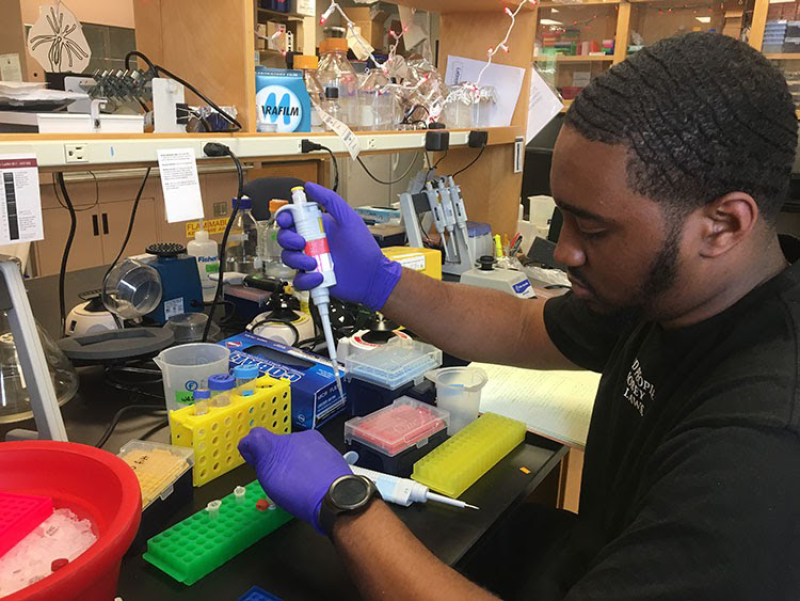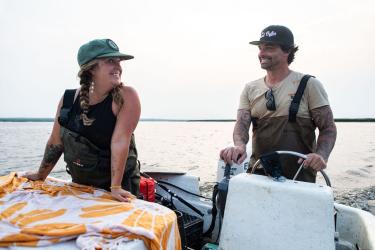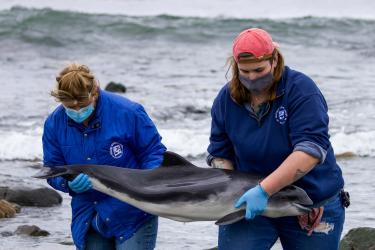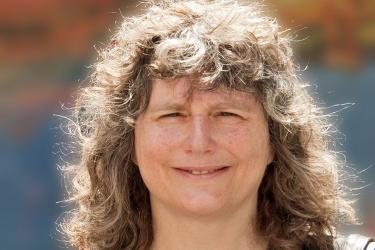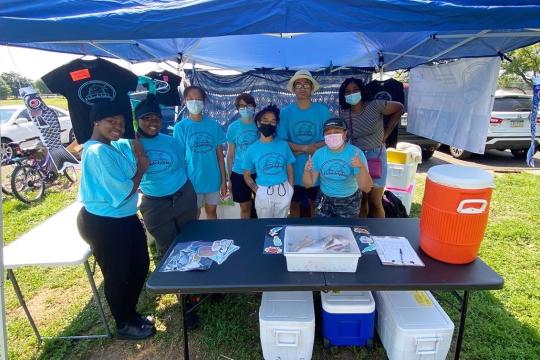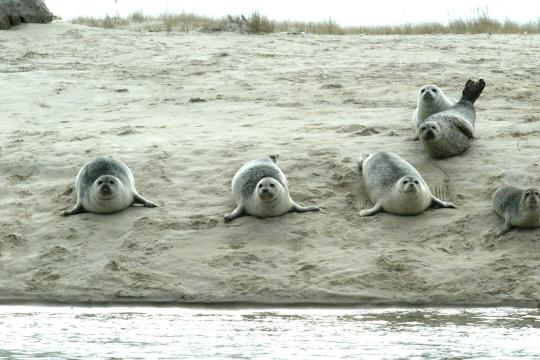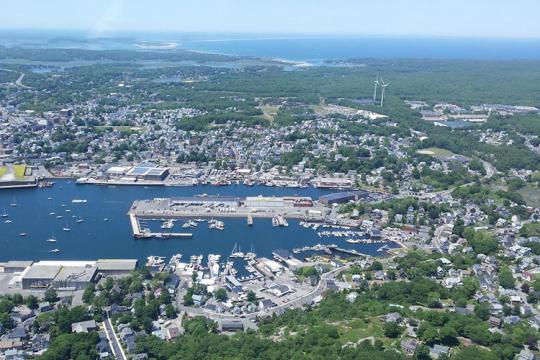The Woods Hole Partnership Education Program is accepting applications for the 2022 summer undergraduate research internship program. Based in Woods Hole, Massachusetts, PEP combines course work with research in marine, oceanographic, biological, and environmental sciences.
“We are excited to call for applications for our fourteenth PEP class, and we hope to be able to bring the 2022 class to Woods Hole for the wonderful experience of studying and working in the science village,” said Onjalé Scott Price, co-director of the PEP internship. “But since we provided a virtual program in 2020 and a hybrid virtual/residential program in 2021, we know that we will be able to offer a good program whether or not we can safely gather in person.”
The PEP staff will visit campuses to meet potential applicants in January and early February, if pandemic conditions permit. They are available now via Google Meet video conference to answer questions and to talk with interested students and faculty To make an appointment, contact PEP co-director George Liles,
Launched in 2009 as a residential program, PEP is designed to promote a diverse scientific community. It recruits talent from all backgrounds, but especially from minority groups that are under-represented in STEM (science, technology, engineering and mathematics) research. Six science institutions in Woods Hole, Massachusetts sponsor PEP in partnership with the University of Maryland Eastern Shore.
“We now have 197 PEP alumni who came to us from 109 colleges—more than half from 33 Minority Serving Institutions and Historically Black Colleges and Universities,” said Liles. Liles is not only PEP co-director but also director of our science center’s Academic Programs Office. “Many PEP alumni have stayed on or returned to study and to work in the village of Woods Hole,” said Liles.
The 2022 Program
The program includes a 4-week course and a 10-week research internship. When the program is offered residentially, interns also go on a 5-day ocean research cruise aboard the Sea Education Association (SEA) tall ship SSV Corwith Cramer. A mentor guides each student during their research project, and a program advisor provides guidance, support, and career advice during the summer.
The Residential Program
If PEP is offered as a residency program, the students will live together on the SEA campus and participate in career-building activities such as seminars, workshops, and field trips. They will attend lectures at partner science institutions throughout the summer, and participate in local community activities.
“The SEA staff looks forward every year to the arrival of the PEP students,” said Peg Brandon, president of Sea Education Association. “We were happy to be able to welcome the 2021 PEP class for 10 days in August, and we hope to be able to host the 2022 class for the full 10 weeks of the program, including a research cruise aboard the SSV Corwith Cramer.”
The research cruise gives students a taste of life at sea, and an opportunity to learn to sail and to gather oceanographic and biological data that they later use in their course work.
Virtual Programming, If Necessary
If PEP is unable to bring students to Woods Hole for an in-person experience for the 2022 year, students can expect a worthwhile virtual experience.
Required Course
The required course is Ocean and Environmental Sciences: Global Climate Change. It is offered for credit through the University of Maryland Eastern Shore and runs from June 6 to July 1, whether the program is residential or virtual. This course:
- Is interactive
- Based on discussion rather than lecture
- Has guest speakers
- Includes a mini-research project using cruise data collected aboard the SSV Corwith Cramer
- Focuses on coding and computational skills to prepare students for the research internships
If the program is virtual, students can expect the research internships to be mostly computational, requiring some computational and coding skill. These skills are not required for students to apply, as PEP will provide computational support and tutoring during the program.
Applicant Information
Designed for college undergraduates, PEP prioritizes college undergraduates, with priority given to rising juniors and seniors who are majoring in:
- Natural sciences (biology, chemistry, physics, or geosciences and earth system sciences)
- Engineering
- Mathematics
- Social sciences
Applicants should also have completed some coursework in oceanography, biology, or marine and/or environmental science.
The decision on whether the program will involve residency in Woods Hole will be announced no later than May 1, 2022.
Whether in-person or virtual, the 2022 PEP program will run June 6 through August 14. Participating students will receive a $5,000 stipend, and course tuition will be covered. If the program is residency, travel and room and board will also be fully covered.
Application deadline is February 11, 2022. The 2022 PEP Class will be announced in mid-March.
Application information and reports on previous programs
Students of all backgrounds are welcome to apply for PEP. Students from groups under-represented in marine and environmental sciences are especially encouraged to apply. This includes African American, Hispanic American, Native American, Asian Pacific Island, and Alaska Native students.
PEP II Also Offered
The 2022 program will include a limited number of PEP II openings. These are reserved for individuals who have completed PEP in a previous summer who want to return for a second summer of research. The PEP II researchers may continue the work they did with their original mentors or they may be matched with new mentors for new projects. The PEP II researchers will live on the SEA campus and present their work in a public symposium in August. In addition to their research projects, PEP II researchers will participate in an education/outreach project to develop curriculum and/or education tools in partnership with educators from local public schools. To apply, contact PEP co-director Scott Price.
More on the PEP Program
PEP is a project of the Woods Hole Diversity Initiative. Participating institutions are:
- NOAA’s Northeast Fisheries Science Center
- University of Chicago Marine Biological Laboratory
- Sea Education Association
- U. S. Geological Survey
- Woods Hole Oceanographic Institution
- Woodwell Research Center
The Woods Hole Diversity Initiative's primary academic partner is the University of Maryland Eastern Shore.
